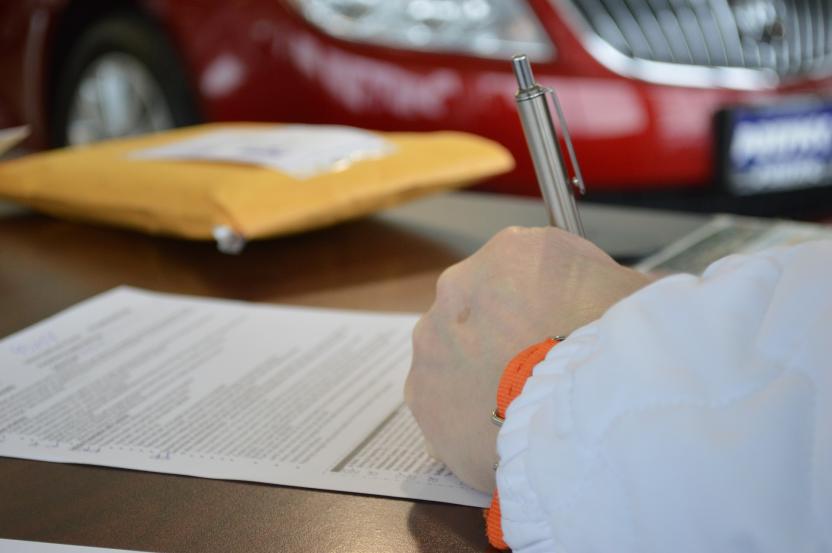You’ve toured a particular region or town and found a nice property or home and made an offer and it's accepted, no its time to enter a process which lasts from a few days to a few weeks, prior to close the transaction. This is known as "due diligence" thus you surely must have hear of “do your due diligence”.
So, what should you understand as due diligence, anyway? Due diligence is a legal term for “do your homework.”

Before buying a property, you absolutely must fully investigate the property and the seller for potential problems that could cost your money thus must be identified prior the closing to fix before you've decided to sign a purchase agreement and enter escrow or before you hand put a deposit, thus document review and validation by a real estate attorney can be crucial to buy the property and make sure that you become the legal owner.
What if problems are detected during the due diligence process?
Many properties have flaws and issues, some of them are actual legal issues.
Even (or sometimes especially) a brand-new house has things wrong with it, depending on how picky a person wants to be.
Home inspectors in Mexico are a rarity, if found, thus the least one can do is recruit the services of a professional contractor to perform inspections.
If buyers would give it a second thought and actually invested in due diligence they would often find so many technical and legal issues and would not enter a purchase agreement at all and would rescind the offer within the time period specified in contingency addendums, BTW, most purchase agreements proposed by REA’s which I have reviewed lack a due diligence clause or addendum, thus you might be forfeiting your financial deposit if unaware.
Don’t lose your earnest money deposit, simply don’t make a deposit unless there is escrow involved.
Be sure that you do understand due diligence before you start the process of buying a home. Due diligence is definitely a process worth taking seriously when you buy such an important asset.
Here's a partial checklist of what you will want to scrutinize before closing the deal.
A title search
Due diligence is more than an investigation of the house. Before you can “take title” to the property, this is a fancy way of saying you establish legal ownership of the property that's entered into public record, be that by creating a Real Estate Trust, Known In Mexico as Fideicomiso or by acquiring ownership of the real property by forming a foreign owned Mexican corporation, in which case it becomes a corporate fix asset, you'll want to do a title search to make sure you may acquire the property free and clear.
For instance, what if the seller had a spouse or girlfriend which shows up and alleges to have invested in the property and has a right to equity in it, or a creditor has placed a financial lien on the home due to an unpaid liability, or there are unresolved boundary disputes with a neighbor or unpaid fees to the HOA or a claim filed by construction workers who did not have social security while they built that home?
Such problems can be costly to address, and due diligence in getting a title search will bring them to light so you can broach these issues with the seller before you make an acquisition you regret.
Condo or HOA rules
If you're considering a potential investment in a condo or property within a homeowners association, you'll definitely want to make a thorough investigation of its declaration of covenants, conditions, and restrictions, or CC&Rs. Basically this is the list of rules and regulations, as well as fines for infractions.
Some can be quite strict, reserving veto power over the color you paint your home or the number or type of vehicles you can have in front of your house (RVs are sometimes banned). Given these are rules of conduct you'll be living under for the foreseeable future, it's wise to evaluate them as part of your due diligence and make sure you're on board—and if not, you can back out with your deposit in hand.
If you are buying a condo, either as an investor or as a home buyer, your financial diligence should also include researching issues with the condo association.
The condo association should have healthy financial statements, including a balance sheet with a good reserve fund. If the condo association may be making special assessments soon, you'll want to discover that during due diligence—not after you move in.
The average Realtor does not provide due diligence, even if they say that your transaction is protected because a notary public will review the sale, to that that I say, false! The notario doesn’t perform due diligence either.
So there is a basic list of concerns to have you think long and hard about letting the REA find you a property and let me control the rest of the process to make sure that you buy correctly, safely and in a timely manner and have you become the rightful owner, with no surprises in the future. Avoid double dipping/conflict of interests and soft closings, average REA’s are often the problem.
Regards,
Rafael Solorzano
[email protected]
Phone (Mexico) from abroad (011-521) 664 188 7001





Comments
Facebook
MoveToTijuana
New
Best